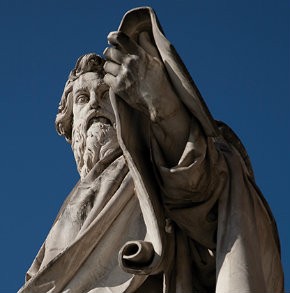One God, one Lord

How does a follower of Jesus live within the world of pagan culture? Paul bases his (thoroughly Jewish) answer on the meaning of monotheism, a monotheism that is both creational and cultic. In 1 Corinthians, chapters six through eight, he insists on the goodness of the present creation and also on the need to be sure one is worshiping the One God and him alone, avoiding the snares of pagan idolatry wherever they may appear.
The whole passage is eschatological. The church is the people “upon whom the ends of the ages have come” (10:11). The passage evokes the great Exodus narrative: it is in the context of the Exodus, the wilderness journeys and the anticipated entry into the “inheritance” that the Pentateuch provides the prayer which summed up what monotheism meant for Jews in the ancient world and to this day. It is a prayer of loyalty to the One God when surrounded by pagan temptations. The prayer of Deuteronomy 6:4 known as the Shema (“Hear”) is dense and notoriously difficult to translate (just as Paul’s reformulation of it is dense and resists easy rendering):
Hear, O Israel: YHWH is our God, YHWH alone. You shall love YHWH your God with all your heart, and with all your soul, and with all your might.





